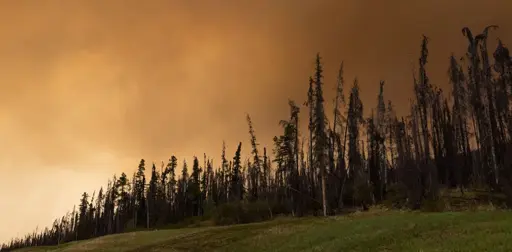- cross-posted to:
- publichealth@mander.xyz
- cross-posted to:
- publichealth@mander.xyz
Authors:
- Bhavini Gohel | Clinical Associate Professor, Cumming School of Medicine, University of Calgary
- Muskaan Muse Laroyia | MSc Candidate & Graduate Researcher, Neuroscience, Hotchkiss Brain Institute, University of Calgary
Anyone who has experienced wildfire smoke knows how it can leave you with a scratchy throat, stinging eyes and impact your lungs. However, smoke can also affect your brain. Tiny airborne pollutants found in smoke have been linked to increased risk of stroke, dementia and flare-ups in neurological diseases like multiple sclerosis (MS).
Alongside harmful gases and heavy metals, wildfire smoke contains fine particulate matter, also known as PM2.5. These tiny particles can travel deep into your lungs, slip into your bloodstream and even reach your brain. Some even bypass the lungs entirely, entering the brain directly through the nose.
After entering the brain, these toxins can cause inflammation and stress, damage nerve cells and even accelerate cognitive decline. Studies have linked exposure to air pollution to an increased risk of stroke and dementia. Even short-term spikes in smoke exposure, like those during wildfires, lead to a surge in emergency visits for strokes, especially among people over 65.
A 2022 experiment had thousands of adults participate in an online attention task under smoky conditions. It found that just a three-hour spike in fine particulate matter, typical of a heavy smoke episode, led to measurably worse attention scores. This fits other evidence that breathing smoke makes people mentally foggy, forgetful or fatigued.

Cool. Just add it to the pile I guess.
Not my brain; I was saving that for the alcohol.
A 2022 experiment had thousands of adults participate in an online attention task under smoky conditions. It found that just a three-hour spike in fine particulate matter, typical of a heavy smoke episode, led to measurably worse attention scores. This fits other evidence that breathing smoke makes people mentally foggy, forgetful or fatigued.
Oh yay… and living here in Manitoba a lot of us have been sucking up wildwire smoke for the last few weeks.
Yay
Say we overhauled our firefighting and massively expanded controlled burns would that help, or would it just draw out the smoke inhilation at lower levels?






